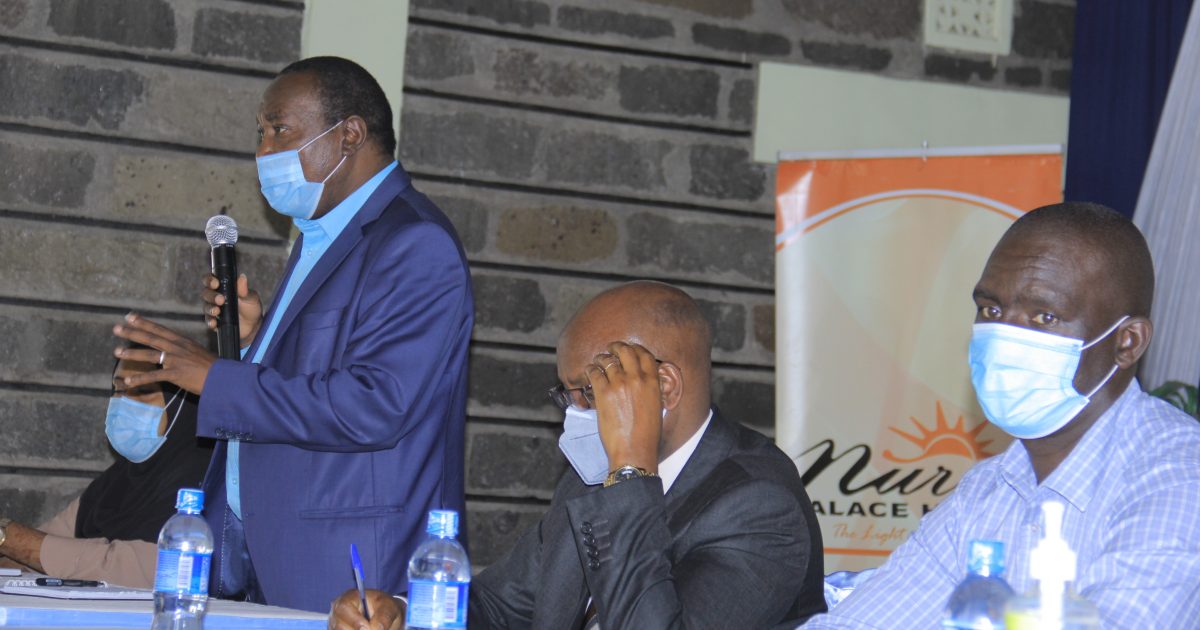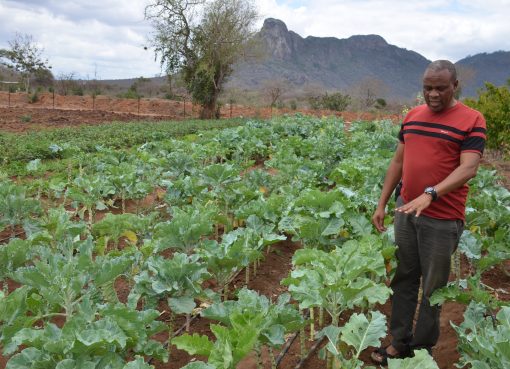County Governments have been urged to adopt the African Peer Review Mechanism (APRM) to improve good governance and sell Kenya’s competitiveness as an investment destination.
Director to the National Governing Council to the New Partnership for Africa’s Development (NEPAD)/ APRM secretariat, Dr. Elias Mbau said good governance was necessary in promoting prudent resource utilization, enhancing economic growth and eradicating poverty.
While speaking in Nakuru during a meeting on dissemination of Kenya’s Second APRM County Peer Review Report to the devolved unit, the Director said the report will help the devolved units develop the County Peer Review Mechanism (CPRM) and provide a platform for governors to share experiences and explore ways of tackling problems in service delivery.
“CPRM is a voluntary governance self-assessment tool to help all governors partner in reducing poverty by creating jobs and raising household incomes. It also aims to enhance citizen participation in governance and development and curb misappropriation of public funds,” observed Dr. Mbau.
The Director was accompanied by Nakuru County Commissioner Erastus Mbui Mwenda, Director of Governance at National NEPAD/APRM Secretariat Mr Peter Kimemia and NEPAD/APRM National secretariat Member Ms Nino Mohammed.
The APRM is a voluntary Governance “Self-Assessment” by African countries, which was agreed upon by African Union (AU) and adopted in 2003. Kenya signed the APRM memorandum of understanding in March 2003 and in 2006, it became the third African state to be peer reviewed at African Union Banjul Summit.
APRM assesses and reviews governance at the head of state level to promote political stability, accelerated regional and continental economic integration, economic growth and sustainable development.
Dr. Mbau noted that Kenya was assessed for the second time in 2017 before President Uhuru Kenyatta officially released the report in March last year for dissemination to the counties in three phases.
“Phase one and two dissemination covering 32 counties has already been concluded, while phase three covering Mombasa, Kitui, Kirinyaga, Nyeri, Nakuru, Marsabit, Wajir, Lamu, Kisii, Migori, Busia, West Pokot, Nandi, and Nairobi will be completed by November 28,” stated the Director.
Mbau called on governors and country administrations to agree to be subjected to the same mechanism through a tool devised by APRM to help devolved units manage resources allocated by the national government prudently.
Mr Kimemia said the second country Review Report applauds various milestones the country had achieved since the first review was done in 2006.
“Kenya will be among the first countries to customize the APRM mechanism to the second tier of governance and I believe this will foster democratic dialogue between leaders and citizens in the delivery of services,” he stated.
Among the milestones singled out by the second APRM report is the promulgation of the Constitution of Kenya 2010 which established the devolved system of government, progressively resolving issues of perceived marginalization and improving governance and public service delivery.
During the review, Kenya was hailed for its efforts towards economic empowerment of marginalized groups through initiating various funds notably, Women Enterprise Fund, Youth Enterprise Development Fund and the Uwezo Fund.
Establishment of Huduma Centre Kenya, as a One-Stop-Shop for efficient public service delivery was also decorated as a best practice which needs to be emulated across the continent.
In spite of the strong commendations over the various successes and achievements by the country, the review mission and the committee of Heads of State and Government also listed a number of challenges that Kenya needed to address. These challenges included, the slow pace witnessed in the implementation of the two–thirds gender rule.
Chief Justice David Maraga has already issued an advisory to the head of state to dissolve parliament on grounds that it is unconstitutionally constituted for failing to implement the two-thirds gender rule.
Terrorism which the report said posed a major threat to national security and high cost of running the devolved governments due to the rising wage bill, management of diversity for national unity, especially within the devolved units, and the quest for transformative leadership, youth unemployment, poverty and inequality were also cited as challenges the country needs to address.
Mr Mwenda welcomed the Second APRM County review report, adding that devolved units should leverage on the same to ensure, among others, inclusivity, public participation, and gender equality is achieved in their respective jurisdictions for the benefit of wananchi.
“The County Integrated Development Plan is implemented after a thorough public scrutiny and when the peer review is done in December, counties will have an opportunity to tell their stories objectively,” Mwenda said.
He noted that coordination between the two arms of government in improving governance will entrench a culture of accountability in the country.
Ms. Mohammed stated that the peer review mechanism provides technological know-how to enhance citizen engagement; innovative thinking on resolving inclusion, transparency and accountability challenges and stringent timelines that push government and civil society actors to take action and report on their achievements faster.
She said Kenya was the first country in Africa to apply the methods used in the APRM to strengthen its devolved governance system.
By Ann Mwale



